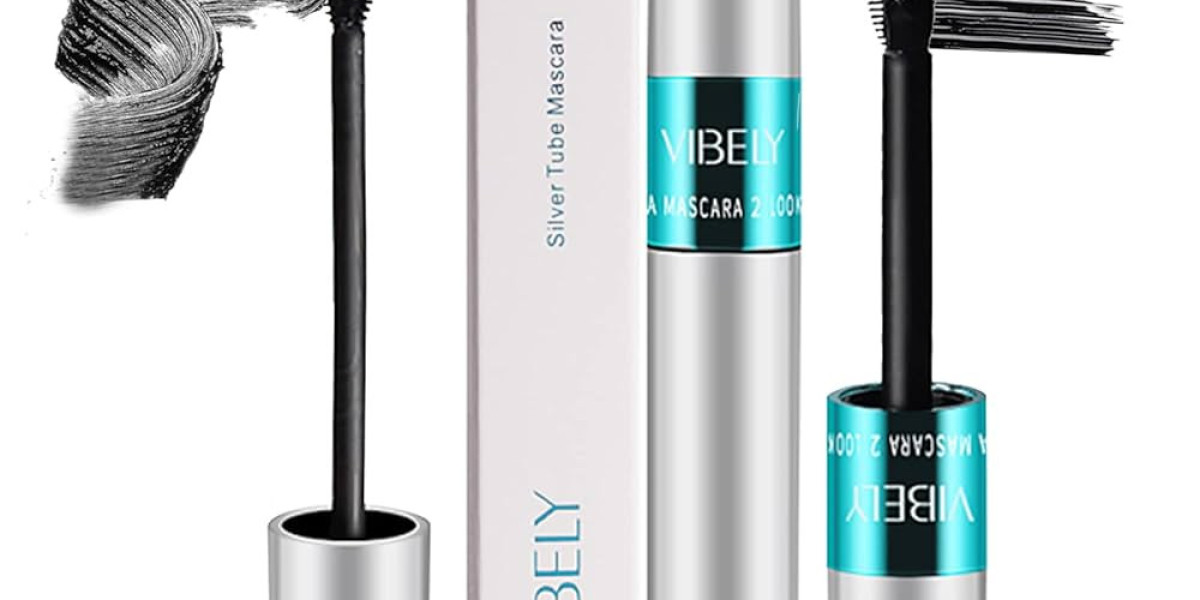In Sydney's competitive hospitality market, the selection of a suitable Hotel Soap Supplier Sydney can make a significant impact on guest satisfaction. With countless suppliers available, it's important to focus on finding one that aligns with your establishment's standards and priorities. Beyond offering soap, the right supplier contributes to creating a memorable guest experience through quality, consistency, and attention to detail. Start by identifying suppliers who understand the unique needs of the hospitality sector, from bulk order capabilities to customization options. Building a partnership with a dependable supplier ensures seamless operations and supports your brand's values. Additionally, consider suppliers who prioritize sustainability, as environmentally friendly practices are increasingly sought after by guests. A thoughtful choice in soap supply can reflect your commitment to quality, hygiene, and guest comfort.
Key Features of Quality Hotels Soap
1. Gentle and Skin-Friendly Formulation
High-quality hotels soaps are made with mild ingredients that cleanse effectively without causing dryness or irritation.
2. Pleasant and Subtle Fragrance
A light, refreshing scent enhances the guest experience without being overpowering, catering to a wide range of preferences.
3. Attractive and Practical Packaging
Individually wrapped or elegantly packaged soaps ensure hygiene, easy storage, and add a touch of sophistication.
4. Long-Lasting and Effective Use
Well-formulated soaps lather well and last through multiple uses, offering both practicality and value to guests.
5. Eco-Friendly and Sustainable Options
Quality soaps often come in biodegradable packaging or use natural ingredients, reflecting a hotel’s commitment to sustainability.
Durability and Usefulness in Guest Settings
High-quality soap should be long-lasting to avoid waste and remain effective throughout a guest's stay. Compact sizes are ideal, ensuring practicality without unnecessary excess. Lastly, ensure compliance with local health and safety standards to guarantee that the soap meets both legal and hygiene requirements.
Finding Reliable Hotel Soap Suppliers in Sydney
To identify trustworthy Hotel Soap suppliers in Sydney, begin by researching online directories and consulting industry networks for recommendations. Focus on suppliers with extensive experience in servicing the hospitality sector, as they are more likely to understand your specific needs. Review testimonials and feedback from other businesses to gauge customer satisfaction, paying particular attention to consistency in quality and punctuality in deliveries. Schedule meetings or calls to discuss your requirements in detail and assess the supplier’s ability to meet them.
Conducting On-Site Visits for Assessment
Whenever possible, arrange an on-site visit to the supplier’s facility. This enables you to inspect their production processes, hygiene standards, and overall operational efficiency. On-site visits provide valuable insight into their commitment to quality and reliability. Additionally, inquire about the supplier’s ability to handle custom orders or sudden changes in demand. Transparent communication and responsiveness are key indicators of a dependable partnership, ensuring your establishment maintains a consistent stock of high-quality soap products tailored to guest expectations.
Customisation Options for Hotels Soap
Customising hotels soap allows your establishment to stand out by aligning the product with your unique branding. Options often include tailoring the soap’s fragrance, colour, shape, and size to complement your desired image. Subtle yet memorable scents, such as lavender or citrus, can create a calming atmosphere and enhance the guest experience. Furthermore, choosing specific shapes or embossed designs—like your logo—adds a professional and personal touch.
H3: Bespoke Packaging for a Distinctive Look
Beyond the soap itself, packaging offers another opportunity to reinforce your brand identity. Consider materials that reflect your values, such as recyclable paper or reusable tins, as these demonstrate a commitment to environmental consciousness. Design elements, including custom colours, fonts, and imagery, can be tailored to your branding. Providing packaging that balances aesthetics with practicality ensures both visual appeal and functionality, impressing guests while keeping the soap hygienic. Explore options to incorporate your establishment’s unique story into the design for added impact.
Evaluating Supplier Costs and Pricing Structures
When assessing supplier costs, it is essential to understand the pricing models offered, including bulk rates and tiered discounts. These structures can provide substantial savings when placing larger orders. Begin by requesting a detailed breakdown of costs, covering not just the soap itself but also additional fees like packaging, customisation, or delivery charges. Compare quotes from multiple suppliers to identify the most cost-effective option without compromising on quality.
H3: Exploring Hidden Costs in Supplier Agreements
Carefully review contracts for hidden costs, such as surcharges for expedited delivery or penalties for order cancellations. Some suppliers may also have minimum order requirements, so ensure these align with your operational needs. Evaluate whether a supplier’s payment terms are flexible, such as offering instalment plans or deferred payments, which can aid cash flow management. Maintain open communication throughout to establish a transparent relationship, ensuring both parties fully understand the terms of the agreement before proceeding.
Ensuring Timely Deliveries from Suppliers
Reliable delivery services are a cornerstone of maintaining steady operations in the hospitality industry. When choosing a hotels soap supplier, inquire about their logistics processes and whether they use advanced tracking systems to monitor shipments. Consistent communication is essential; ensure the supplier provides updates regarding dispatch and estimated arrival times. Establish clear expectations for lead times and negotiate a delivery schedule that accommodates your inventory needs without overstocking or running short. Assess their contingency plans for addressing delays caused by unforeseen circumstances, such as transport disruptions or supply shortages. Request information on their partnerships with courier services or in-house delivery teams, as this can impact the speed and reliability of their service. Flexibility is another key factor; suppliers who can adapt to sudden order adjustments demonstrate a readiness to support your business during peak periods. Building a professional relationship with your supplier may also encourage prioritisation in times of increased demand.
Legal and Regulatory Considerations
Ensuring compliance with local legal and regulatory standards is crucial when selecting a hotels soap supplier in Sydney. Begin by verifying that the supplier meets the guidelines set by relevant Australian authorities, such as product safety and labelling requirements. Request certification documents or test reports to confirm that the soaps adhere to these regulations. It is also essential to confirm that the supplier follows industry best practices, including hygienic production processes and proper storage protocols.
Additionally, consider any specific standards related to the hospitality industry, such as requirements for biodegradable or eco-friendly products. If your hotel caters to international guests, ensure that the soap meets the expectations of a diverse clientele, particularly regarding allergens and ingredient transparency. Consult with legal professionals or regulatory bodies if you are unsure about certain requirements, as this will help safeguard your business against potential non-compliance issues. Openly discuss these considerations with your supplier to establish a transparent and mutually accountable relationship.
Sustainability and Ethical Sourcing in Soap Supply
Incorporating sustainability and ethical sourcing into your hotels soap supply chain not only supports responsible business practices but also caters to the growing expectations of eco-conscious travellers. Look for suppliers who utilise sustainable raw materials, such as plant-based or biodegradable ingredients, which have a lower environmental impact. Ethical sourcing ensures that workers involved in the production process are treated fairly, with suppliers adhering to fair labour standards and avoiding exploitative practices. Packaging plays a significant role as well—prioritise suppliers offering recyclable, compostable, or reusable materials to minimise waste. Transparency is key; suppliers should be willing to provide detailed information about their sourcing and production practices. Additionally, seek out those who actively invest in sustainable initiatives, such as reducing their carbon footprint or supporting reforestation programmes. By choosing suppliers committed to these principles, your establishment can align its operations with values that resonate with a modern, socially conscious audience, ultimately creating a more positive guest experience.
Handling Common Challenges with Hotel Soap Individually Wrapped
Supply chain interruptions and inconsistent quality are common issues associated Hotel Soap Individually Wrapped. Begin by maintaining a detailed record of inventory levels to identify potential shortages early, allowing ample time to address delays. Work closely with your supplier to establish contingency plans, such as alternative packaging options or expedited delivery services. Request regular updates regarding production schedules and shipment tracking to avoid surprises.
Inconsistent quality can be mitigated by requesting batch samples for testing prior to large-scale distribution. Collaborate with your supplier to set clear quality benchmarks, including packaging durability and product consistency, ensuring adherence to your standards. Address guest feedback promptly by communicating concerns to the supplier and seeking improvements.
For waste reduction, explore recyclable or biodegradable wrapping options, which can resolve complaints about excessive packaging. Periodically reassess your supplier’s performance, particularly after resolving issues, to determine their long-term reliability. Regular audits and open communication will help maintain quality and ensure seamless operations.
How to Transition to a New Hotels Soap Supplier
Switching to a new hotels soap supplier requires careful coordination to minimise disruptions. Begin by conducting a thorough review of your current inventory levels and usage patterns to determine the ideal timing for the transition. Notify your existing supplier in advance of your decision to terminate the partnership, ensuring all outstanding orders are fulfilled before the switch.
Collaborate closely with your new supplier to finalise product specifications, delivery schedules, and any customisation requirements. Request initial samples for approval and perform a small-scale trial run to address any potential issues before full implementation.
Implementing a Phased Approach for Seamless Transition
1. Conducting a Thorough Initial Assessment
Begin by evaluating current processes, systems, or infrastructure. Understanding the starting point ensures each phase is tailored to actual needs.
2. Defining Clear Milestones and Objectives
Break the transition into manageable phases with specific goals. This makes progress measurable and keeps the team aligned.
3. Prioritizing Critical Areas First
Focus on high-impact areas that deliver immediate benefits. Early wins build momentum and confidence in the transition process.
4. Ensuring Continuous Communication and Training
Provide updates, resources, and training at every stage so stakeholders adapt smoothly and remain engaged throughout the transition.
5. Monitoring, Reviewing, and Adjusting Phases
Track outcomes after each phase, gather feedback, and make improvements before moving to the next stage for a seamless overall transition.
Future Trends in Hotels Soap Supply
Emerging trends in hotels soap supply focus heavily on sustainability, personalisation, and innovation to meet evolving guest preferences. Waterless soap bars are becoming increasingly popular, offering a compact, travel-friendly solution that reduces water usage during production. Refillable dispensers are also gaining traction, minimising single-use plastics and aligning with eco-friendly initiatives.
Another trend involves highly customized soap options, including unique scents, shapes, and packaging, allowing hotels to strengthen their brand identity. For example, luxury establishments may opt for artisanal, hand-crafted soaps featuring organic ingredients, which appeal to health-conscious and environmentally aware travelers.
Technology is playing a greater role too, with suppliers leveraging data analytics to predict order needs and minimize waste. Some are even introducing smart inventory systems for streamlined restocking. Collaborations with local artisans and sourcing fair trade ingredients are further enhancing the appeal of soap offerings, reflecting ethical business practices. Keeping pace with these trends ensures your hotel caterers to modern guest expectations effectively.
Conclusion:
Selecting a reliable Hotel Soap Supplier Sydney is an opportunity to elevate your guests' overall experience while supporting operational efficiency. Prioritize suppliers who offer high-quality, skin-friendly products with options for customization, as this ensures alignment with your brand identity. Evaluate their commitment to sustainability and ethical sourcing practices, as these factors increasingly influence guest perceptions. Maintain open communication with your supplier to address any concerns promptly and foster a productive partnership. Consider implementing phased transitions if changing suppliers to minimize disruption to your service. Ensure compliance with local regulatory standards and conduct periodic quality checks to uphold hygiene and safety. Staying tuned to emerging trends, such as refillable dispensers or innovative formulations, allows your establishment to remain competitive in an evolving market. A well-chosen supplier is key to delivering a seamless and memorable guest experience.
6 FAQs
1. What makes eco-friendly soap more sustainable?
- Eco-friendly soaps use biodegradable ingredients and minimal packaging, reducing environmental impact.
2. How do I ensure my supplier adheres to ethical sourcing?
- Request information about their supply chain and certifications for fair labor practices.
3. Are there cost-effective ways to customize Hotel Soap Supplier Sydney?
- Opt for simpler customization options Hotel Soap Supplier Sydney, such as embossing logos or selecting standard packaging with unique branding elements.
4. How often should I reassess my supplier's performance?
- Conduct periodic reviews, ideally every six months, to ensure consistent quality and service.
5. What are some sustainable alternatives to individually wrapped soap?
- Consider refillable dispensers or soap bars with compostable wrapping to reduce waste.
6. Can seasonal trends affect hotel soap supply?
- Yes, demand fluctuations during peak travel periods can impact availability, so plan ahead.
Related Business Listings |















